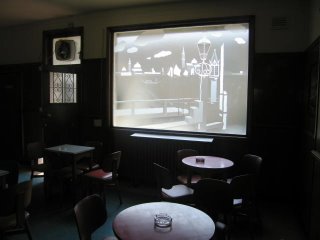some more photographs of Morecambe desolation




Well, I've been a bit distracted in the last week and so my photoblogging's slowed somewhat. In the meantime, and because the Minnesota State Fair brought it to mind, here are a few more photos of Morecambe, taken when I went back there in July. Piika's pairings of poetry and photography got me thinking about the American poet, Kenneth Fearing who wrote mainly in the 1930s and 1940s. I think that Piika got me thinking about Fearing because her pairings of poetry and photography bring to mind the strong visual element of his poems. Fearng also wrote about time in an interesting way. I think that it was he who described cameras as "clocks that take pictures." That's an idea that I think really speaks to the practice of photoblogging too, what with the extremely fast process of image reproduction that tends to occur. (Ironically, my laziness this week sort of contradicts that, but even so, I think it's often the case).
There's something about Morecambe's "in-process-ness" (if you know what I mean) that makes me think of time. The town seems to be changing (mainly decaying) as time ebbs away. The last three photos suggest ongoing decay, though there are things in Morecambe (that are less evident in these photographs) that suggest rejuvenation. Then again, perhaps decay is also a kind of rejuvenation if we see Morecambe’s declining tourist trade as a metaphor for a return to its pre-tourist resort past. The first photograph (inside Brucciani's cafe on the promenade) evokes a sense of stasis for me—time has pretty much stood still there in the sense that the owners have retained the gorgeous art deco and (thankfully) resisted implementing any major modernizations. For me, the near absence of people in the photographs also evokes Morecambe's odd relation to time. These scenes look both timeless and of their contemporary moment, I think. Photographs of the promenade created between the 1910s and the 1970s generally show large crowds of holidaymakers (let’s see if I can find some old postcards soon). That was before cheap flights made it possible for holidaymakers to go to the seaside resorts of
